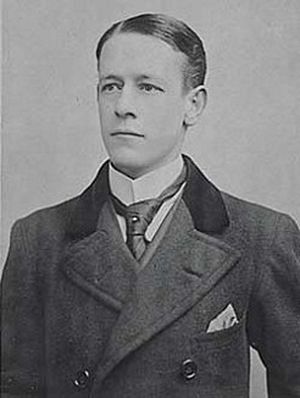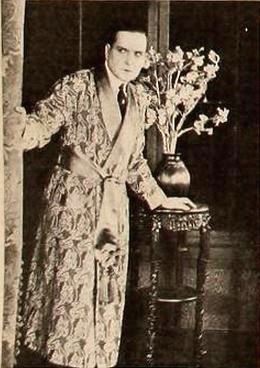C. Haddon Chambers facts for kids
Charles Haddon Spurgeon Chambers (born April 22, 1860 – died March 28, 1921) was a famous writer of plays, also known as a dramatist. He was born in Australia but spent most of his working life in England.
Contents
Early Life in Australia
Charles Chambers was born in a place called Petersham in Sydney, Australia. His father, John Ritchie Chambers, worked for the government in New South Wales. His mother, Frances, came from Waterford.
Charles went to schools in Petersham, Marrickville, and Fort Street High. He didn't really enjoy regular schoolwork. When he was 15, he started working in the lands department, but he didn't stay there for long. For two years, he worked in the Australian outback looking after land boundaries.
In 1880, his cousins invited him to visit them in Ulster, which is in Ireland. From there, he also traveled to England. When Charles came back to Australia, he worked for an opera company.
Becoming a Playwright
In 1882, Charles Chambers moved to England for good. He didn't know anyone there, so he tried different jobs to earn money. He started by writing letters from London for an Australian magazine called The Bulletin.
- In 1884, his first story was published.
- More of his writings appeared in popular magazines like Society and Truth.
His first short play, One of Them, was performed in London in 1886. Another short play, The Open Gate, was shown at the Comedy Theatre in 1887.
First Big Successes
Charles Chambers had his first major success with a play called Captain Swift. This play was put on by a famous actor named Beerbohm Tree in 1888. It was very popular and was performed in England, America, and Australia.
He had another successful play called The Idler in 1890. Some of his next plays, like The Honourable Herbert, The Old Lady, and The Pipes of Peace, were not as popular. However, John-O-Dreams, first shown in 1894, was a hit. Also in 1894, his play The Fatal Card did well.
Later Popular Plays
In 1899, one of his best plays, The Tyranny of Tears, was produced. It was so good that it was performed many times over the years. Later on, his plays Passers By (1911) and The Saving Grace (1917) were also very well-liked.
Later Life
Charles Chambers always kept an interest in Australia. He often talked about going back, but he never did. He passed away in London on March 28, 1921, from a brain-related illness. He was buried at Kensal Green Cemetery.
He was married twice. His second wife was Nelly Louise Burton, also known as 'Pepita Bobadilla'. He also had a daughter from his first marriage to Mary Dewer.
Works
Here are some of the plays and stories Charles Haddon Chambers wrote:
- The Idler 1890 (a play)
- Thumb-Nail Sketches of Australian Life 1891 (a collection of short stories)
- The Fatal Card 1895 (a play)
- The Tyranny of Tears: A Comedy in Four Acts 1900 (a play)
- A Modern Magdalen 1902 (a play)
- The Open Gate: An Original Domestic Drama in One Act 1902 (a play)
- The Awakening: A play in Four Acts 1902 (a play)
- Sir Anthony: A Comedy of the Outskirts in Three Acts 1909 (a play)
- Passers-By: A Play in Four Acts 1913 (a play)
- The Impossible Woman 1914 (a play, also known as Tante)
- The Saving Grace: A Comedy in Three Acts 1918 (a play)
- Captain Swift (play) 1919 (this play was made into a film in 1920)
 | Lonnie Johnson |
 | Granville Woods |
 | Lewis Howard Latimer |
 | James West |



